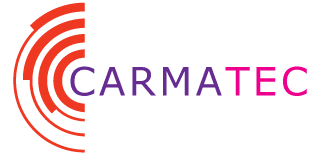Technology has forever transformed the way education is delivered to students. Teaching and learning are no more defined by the conventions of physical locations with blackboards and benches. The Digital era has revolutionized the education system like it was not possible ever, thanks to e-learning.
eLearning tools enable students and educators to explore new possibilities in the education realm. They now have round-the-clock access to resources regardless of status or location. Students reading philosophy in England can now use the educational material provided by the subject matter experts a continent away. Not only this, people can now manage their full-time jobs, family, and a lot more without having to compromise on their education.
Education in combination with technology proves to be a practical recipe for the success of technology giants and the education system. Recent stats show it as one of the leading trends shaping the future.
- 80% of enterprises and institutional students have been using an eLearning platform.
- As of 2020, mobile e-learning had grown by $38 billion. From 2017 to 2022, there is an expected upward trajectory of $6 billion. (Source)
This makes it even more exciting to see this combination of technologies and advancements unfold and blend with the educational sector.
Here are some of the edtech trends expected to take the industry to another horizon in the upcoming days.
#1 AR/ VR to Give Education the Boost of Interactive Experience
Thanks to AR/VR, classrooms are no more just closed spaces with boring lectures, thanks to AR/ VR. Education space today offers a great immersive experience that makes the learning process much more exciting and rewarding for the students and the teachers. Credit goes to the AR/ VR development companies who work relentlessly to enhance students’ learning experience.
According to Melissa Pelletier, “VR offers a perfect vehicle for students to learn while putting themselves in other’s shoes. Kids of all ages could benefit from experiences that require them to work in teams or show them what it’s like to be discriminated against. Social-emotional skills like empathy are valuable both within the classroom and throughout life. They may not be written into the curriculum like history or math yet, but they’re as important.”.
Microsoft’s HoloLens introduced the concept to help students better understand the concepts. This outlook of innovation helps the students to avoid the monotony of subjects. AR/ VR is undoubtedly a sector to watch out for with this extreme popularity.
#2 Let your skills go virtual
The digital era call for the abolishment of the physical degrees. Employers now seek the evidence of skills that degrees and resumes cannot offer. This makes virtual portfolios need of the hour. They help the students go beyond the idea of existing skillsets and add weight to their professional journey by enabling them to express their knowledge better. And that indeed makes them outshine the competition with an affluent professional image.
Imagine what could be better than showcasing the best of your traits like abilities, efficiency records, and personal attributes in a way that they speak for themselves.
#3 Go Beyond Physical Spaces with Personal Learning Hotspots
You no more require those classroom teaching methods to learn and grow. All you now need is the zeal to discover an internet-enabled device. Reports suggest that there are almost 4 billion global internet users. And why, now that most facets of our lives have gone digital, being deprived of the internet is nothing less than leading the life of the stone age.
Educational institutions now provide students with hotspots to ensure that students can relish non-stop educational classes without being constrained by time: boundaries, or educator’s availability. This, in turn, helps them make the best of their educational journey.
#4 Microlearning
Microlearning has already attained an excellent reputation in the education space. Credit goes to its wide range of benefits, like quick deployment and learning, increased productivity, and smooth tracking. Organizations are exploring new ways to give it an edge using its ability to deliver targeted, objective-oriented, practical learning. Students can now access short educational videos and clips, interactive aids, short games, quizzes, and infographics.
#5 Adaptive or Personalized Learning
While we seek personalization in everything, could education be left behind? Of course not. This is why the modules available in the library are now found personalized to meet the demands of specific groups. Not only do they support focused training but also augment RoI, thus proving a win-win for both the education industry as well as eLearning development company. Learners are tested and provided the modules that best fit their requirements, like areas that need more focus, those that require minimal attention, and a lot more like this.
#6 Social Learning
Social media has taken over our lives to a great extent. From checking our social media profiles early morning to publishing details of our day on them, somewhere, we have fallen for socializing. And to add value to our love for social media comes the era of social learning. Forums, chat boxes, note sharing, and a lot more empowers the idea of collaborative learning. Not only this, organizations are experimenting with more collaborative spaces and professional socializing to enable learning in an improved way.
Conclusion
Over the past few years, technology and education have proved to be the best allies for each other. The role of technology has gone so vital in the education ecosystem that question is no longer centered on how technology will enhance education but rather on how we can apply technology at its best to improve our learning. With more advancements on the way, entwining technology in education will be worth the watch.













